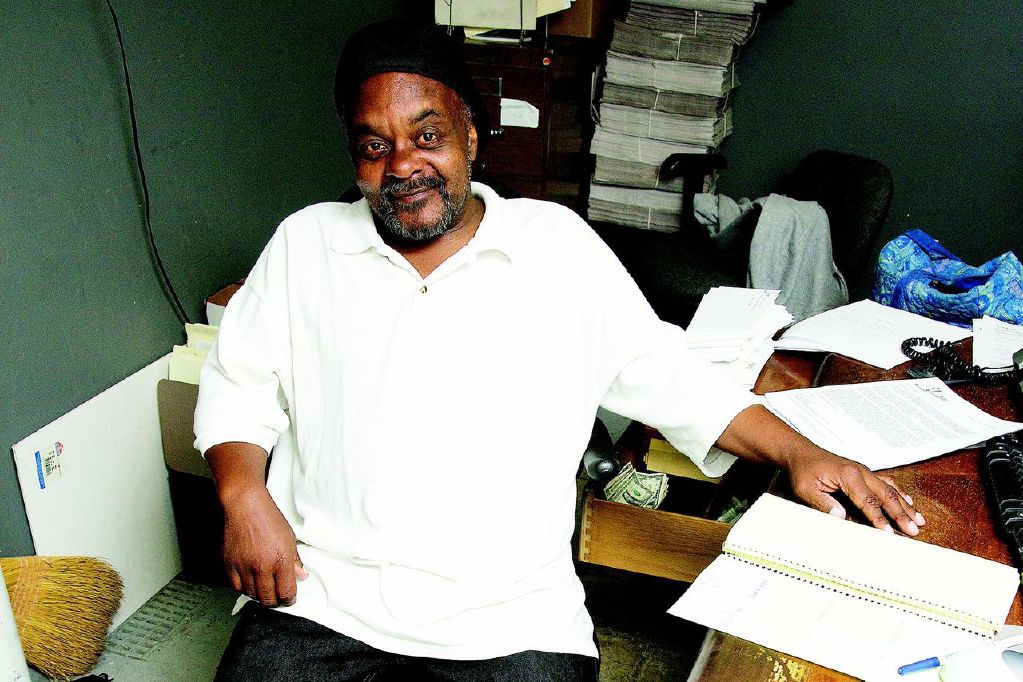The other day I was thinking of one of our former editors, the first black editor Spare Change had in over 20 years, when he came aboard he began to take the paper in a new direction. Let’s just say there was a lot more color than the paper was used to, and there was grumbling not just from customers buying the paper but also from people within the organization itself. Not in-your-face stuff, but some were not happy with our new editor or the direction it was taking. Too bad I didn’t notice it.
When things began to get a little heated he told me and another member of the board, who was also a person of color, that he felt the reason why he was being squeezed was because he was black. I laughed it off.
“How can that be?” I said, “Our last two Board Presidents have both been black!” I was referring to myself and my successor. The other board member in the room with me during the conversation was also black and the sitting Vice President. “There’s no way that’s the reason your being given a hard time.” The stupidity of that statement was running across my mind as I’ve watched CEOs the last couple of weeks backpedal and try to explain the racism in their own companies and the shock that exists.
During the course of my time here, other members of the organization and I have either blown off or denied, and in some cases, contributed to the racism and misogyny that has risen its ugly head here. Where does that kind of culture even come from in an organization like this? Where does it even begin? Where everything starts of course: at the beginning. Many people, even those that are currently involved now, don’t know that 90 percent of this organization, from the co-founders to the first few vendors that helped build this newspaper, were men and women of color. It nearly didn’t happen that way.
Boston Jobs with Peace were sponsoring another organization at the time, that organization was made up of mostly white men who wanted nothing to do with Tim Harris and Tim Hobson’s idea of creating a street newspaper or the black folks who were going to be a part of it. Lucky for us the rules for joining said organization was that you only had to attend three meetings to become voting members; you can pretty much guess what happened from there. We congratulated each other on our victory, but we didn’t address the racism. We didn’t think we had too: as far as we were concerned we had vanquished the racist element in our ranks, besides, we had a newspaper to create. But that non discussion would come back to bite us in the ass. A few months later when things broke down between leaders, many of us took sides along racial lines. Oh I almost forgot the misogyny; like many organizations male dominance became the norm even though there were many women with huge roles in helping us get started. They weren’t really in positions of leadership and the one or two that were in leadership were dating someone involved.
Tim Harris tried to change that, but all he got was grief, nonetheless the group was convinced that changes needed to be made so it was decided that each of the leaders had to have female co-chairs. We grumbled and managed to convince (or “con”) them into letting us pick our own co-chairs since it was us not them who had to work with them. They agreed, so instead of a democratic vote we picked. We each chose our significant others to be our co-chairs. To say that was a cowardly move would be an understatement. Things went downhill from there and Spare Change nearly imploded in less than a year. We were able to regroup and go on, but still we never addressed the elephant in the room.
Since that time we have had many many incidents- some large, some small- but the damage is there though we sometimes don’t want to admit it or see it. Instead of addressing the culture we’ve convinced ourselves that we’re on this noble crusade and not wanting to admit that we too are guilty of the same things we so righteously accuse others of. It has proven costly in ways that sometimes we can’t see or don’t want to, and we’ve lost good people because of it. Reverend Osagyefo Sekou was a good man and a good editor, and I wish I hadn’t been so nonchalant about his concerns. There are those that will read this and wonder why am I unearthing all of this now. It’s because change needs to happen and this story is where it begins.

Leave a Reply
You must be logged in to post a comment.